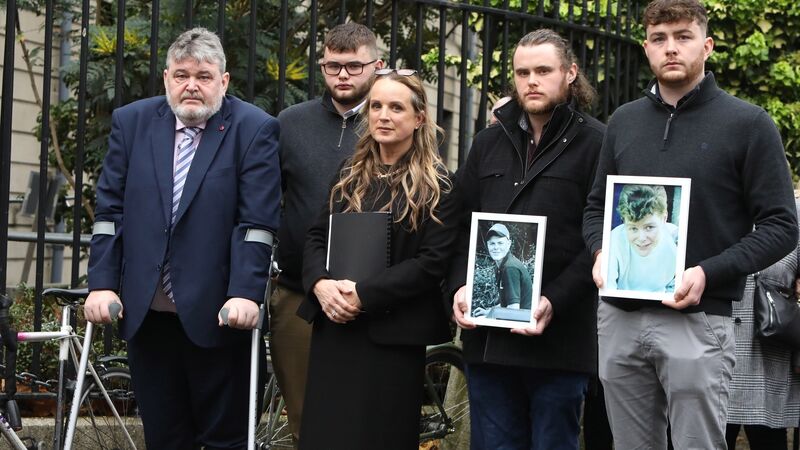'People should not have to battle like this': Husband settles lengthy fight over wife's cervical cancer death

Kevin Fitzpatrick with his solicitor, Niamh Ni Mhurchu, of Callan Tansey, and his three children outside the Four Courts. Portiuncula University Hospital has apologised to the family of Maria Fitzpatrick, 38, of Collinstown in Co Westmeath, who died from cervical cancer complications on March 13, 2009. Picture: Collins Courts
“People should not have to battle like this,” a grieving husband has said outside the Four Courts as his protracted legal fight over his wife’s death from cervical cancer was settled.
Kevin Fitzpatrick said the loss of his wife Maria left a profound absence and “raised painful questions about the responsibility safety and duty of care owed to every patient.”














